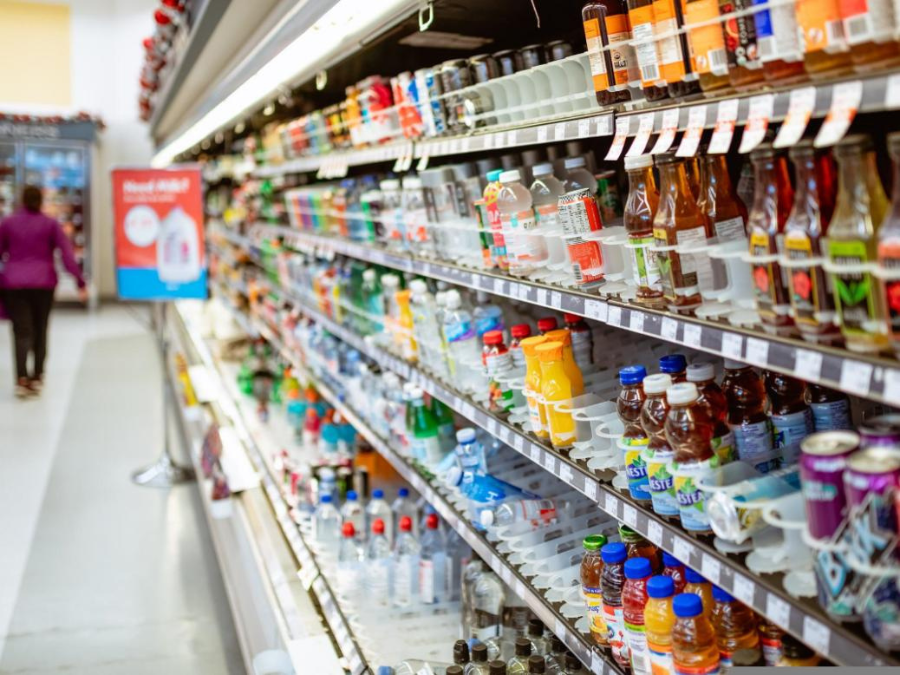
A report by Scotland’s government has found “major risks” in its assessment of the impact of the country’s proposed deposit return scheme (DRS).
The ‘Gateway Review Final Report’ – published today (15 December) – gave current DRS proposals an amber/red warning and argued for a “softer approach” to its implementation. It added “further urgent activity” is required on current proposals.
Under the feasibility criteria outlined by the report, an amber/red warning is given when “successful delivery of the project is in doubt with major risks or issues apparent in a number of key areas”.
“The review team met with a large number of stakeholders, and are confident that this report represents a realistic and comprehensive status of DRS, as responsibility transitions from Scottish government to industry, represented by Circularity Scotland,” the report said. “The review team finds that a fully functioning and compliant DRS cannot be in operation for the revised August 2023 schedule.
“The review team believes that a ‘softer’ approach to DRS implementation should be pursued but further urgent activity would be required to consider, assess and agree this possibility.”
Among the issues highlighted that required urgent action ahead of the “go-live” date of August 2023 were around: “the needs and structure for programme governance and leadership” as well as “the roles and coordination of communications across the programme”.

US Tariffs are shifting - will you react or anticipate?
Don’t let policy changes catch you off guard. Stay proactive with real-time data and expert analysis.
By GlobalDataUnder current DRS proposals, all drinks producers and retailers selling single-use drinks containers in Scotland will be required to sign up for the DRS by February 2023.
A refundable GBP0.20 (US$0.24) deposit will then apply to single-use PET plastic, aluminium, steel or glass drinks containers from 50ml to three litres in size from August 2023.
Small producers selling in Scotland have been vocal in their criticism of the scheme, which they believe will severely impact cashflow and increase the administrative burden on their businesses.
Darron Anley, founder of Berkshire-based craft brewery Siren Craft Brew Co. told Just Drinks the present proposals were “absolutely unworkable for small businesses”, adding his brewery would be pulling out of Scotland in small-pack format as a result.
“Recycling and protection of our planet is incredibly important to us,” he said. “I totally understand and support full meaningful dialogue to do whatever we can as a country to eliminate waste.
“My concerns, however, revolve around what is being proposed. The Scottish DRS at the moment is absolutely unworkable for small businesses. Only today has the Scottish government conceded there are too many cost burdens – some of which too open-ended for small business to contend with. This will go live in August and that is not enough time for small businesses reliant on that sector to know that they can continue to trade.
“We had made the really hard decision to pull back all our small pack sales to Scotland as it was too costly, and have communicated that with our distribution partners and supermarkets that we work with. We will also not be able to ship to Scottish customers on our website from August either.”
Circularity Scotland, the organisation responsible for the implementation of DRS in Scotland, has reduced the ‘day one’ cash requirements needed from producers to start up the scheme, and cut year one producer fees by up to 40% depending on the material in question.
Under the review, producers will now pay GBP0.022 per plastic item as opposed to GBP0.032. The cost of aluminium will drop from GBP0.034 per container to GBP0.02 and glass from GBP0.044 to GBP0.041.
The Society of Independent Brewers (SIBA) said, however, the changes did not go far enough.
SIBA’s Scottish regional director Jamie Delap said: “There are still too many unknowns around the costs and regulatory burdens such as around VAT and the online takeback service which requires small producers to collect empties from people’s homes.
“The announcement of the revised producer agreement, which reduces the producer fee, unfortunately only makes minimal moves to address the concerns of small producers who are facing a perilous trading environment.
“With only a few months to register and so many unknowns, it is hard to see how any small producer could accept the terms proposed by CSL or make a commercial decision to sign up to the scheme.”
Implementation of DRS across the UK is set to be fragmented, with different systems in place across Scotland, England and Northern Ireland, and Wales. England and Northern Ireland are set to exclude glass bottles from their version of the scheme. Wales has joined Scotland and Ireland in pursuing an “all-in” version that includes glass.
Anley described the discrepancies as “dysfunctional”, adding that the implementation of three differing DRS systems as “catastrophic” for small businesses such as his own.
“At least with one system across the entire country, there would be a reasonable chance to protect the environment as well as small business,” he said. “However it seems the Scottish government are dead set on doing something ahead of the UK, and UK government seem to be dead set for doing something different to Scotland.”



